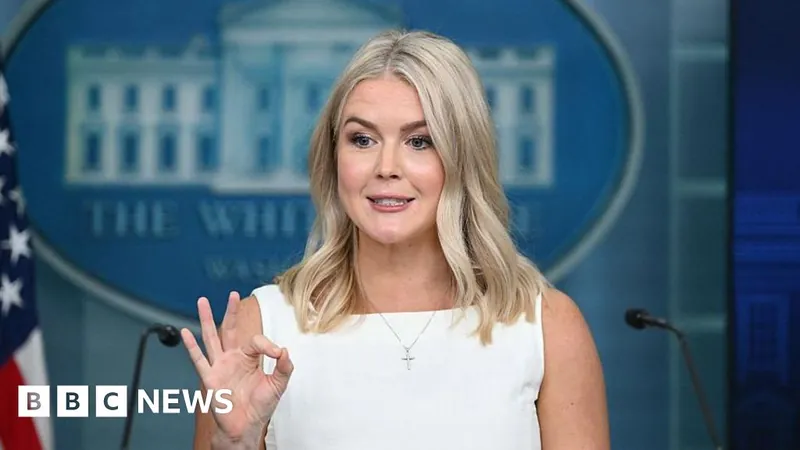
White House in Talks for 10% Intel Stake as Chip Battles Heat Up
2025-08-20
Author: Jia
A Bold Move: U.S. Government Eyes Intel Stake
In a potentially game-changing development, the White House confirmed Tuesday that the Trump administration is negotiating a deal for the U.S. government to acquire a 10% stake in the semiconductor titan Intel. This ambitious initiative aims to bolster national security and strengthen the American economy, according to White House Press Secretary Karoline Leavitt.
A Strategic Exchange: Grants for Shares
Commerce Secretary Howard Lutnick revealed that this deal may involve exchanging government grants for shares in Intel. "We should get an equity stake for our money," he explained on CNBC, emphasizing the innovative approach of securing equity rather than merely handing out grants.
Intel's Struggle Against Global Giants
As Intel works to regain its footing in the competitive landscape dominated by rivals like Nvidia, Samsung, and TSMC—especially in the thriving AI chip market—this U.S. stake could be a crucial lifeline. Last week, a spokesperson suggested that reports of the negotiations should be considered speculative unless formally announced.
New Investments Signal Confidence
In an encouraging sign for Intel, Japanese investment giant Softbank recently announced a $2 billion stake in the company, signaling a strong vote of confidence in Intel’s recovery strategy. Following this news, Intel’s shares surged nearly 7% in New York.
Political Involvement: A Double-Edged Sword?
While Intel remains one of the United States' few companies capable of producing high-end semiconductors at scale, involvement from the government raises concerns about potential bureaucratic slowdowns and shifting priorities. Dan Sheehan from Telos Wealth Advisors noted that while the U.S. stake underscores Intel’s critical role as a top domestic chip producer, political influence could complicate management and operational efficiency.
Intensified Scrutiny of the Chip Industry
These discussions come amid heightened scrutiny of the U.S. chip sector by the White House. Notably, Nvidia and AMD recently agreed to pay the U.S. government 15% of their revenues from China in exchange for essential export licenses—a historic deal that underscores the evolving dynamics of global chip manufacturing.
Looking Ahead: The Future of Intel and the Chip Industry
As negotiations continue, the tech world watches closely. Will this government intervention propel Intel to new heights, or will it introduce hurdles that delay its recovery? Only time will tell, but one thing is clear: the battle for supremacy in the semiconductor industry is just heating up.




 Brasil (PT)
Brasil (PT)
 Canada (EN)
Canada (EN)
 Chile (ES)
Chile (ES)
 Česko (CS)
Česko (CS)
 대한민국 (KO)
대한민국 (KO)
 España (ES)
España (ES)
 France (FR)
France (FR)
 Hong Kong (EN)
Hong Kong (EN)
 Italia (IT)
Italia (IT)
 日本 (JA)
日本 (JA)
 Magyarország (HU)
Magyarország (HU)
 Norge (NO)
Norge (NO)
 Polska (PL)
Polska (PL)
 Schweiz (DE)
Schweiz (DE)
 Singapore (EN)
Singapore (EN)
 Sverige (SV)
Sverige (SV)
 Suomi (FI)
Suomi (FI)
 Türkiye (TR)
Türkiye (TR)
 الإمارات العربية المتحدة (AR)
الإمارات العربية المتحدة (AR)